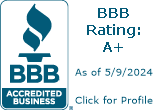As you age, there are a lot of things to worry about – one of which is medicare scams. It’s important to be aware of these scams and protect yourself from them. Scammers will often target seniors with fake calls or emails, trying to get them to sign up for Medicare plans they don’t want or give out personal information. Don’t let yourself fall victim to these scammers! Hang up the phone if you receive a call like this, and don’t respond to any emails that look suspicious. There are plenty of legitimate medicare resources available, so there’s no need to deal with scammers.
The common types of scams that seniors encounter are:
- Fake medicare phone calls: You’ll receive a call from someone claiming to be from Medicare, asking for your personal information. They may even say that you need to sign up for a new Medicare plan. Don’t fall for it! Hang up immediately.
- Suspicious emails: You may get an email that looks like it’s from medicare, but upon closer inspection, you’ll see that the email address is fake or the message doesn’t make sense. Don’t reply to these messages and don’t give out any personal information. Delete them right away.
If you think you’ve been targeted by a medicare scam, report it to the Federal Trade Commission (FTC) at ftc.gov/complaint. You can also call their hotline at 1-877-382-4357.
Protecting yourself from medicare scams is important – not just for your finances, but also for your peace of mind. Be aware of the common types of scams out there and don’t let yourself be taken advantage of. With a little vigilance, you can avoid these scam artists and enjoy your golden years stress-free.
What should I do if I have responded to a fake email or answered a fake call?
If you have responded to a fake email or answered a fake call, you should report it to the Federal Trade Commission (FTC) at ftc.gov/complaint. You can also call their hotline at 1-877-382-4357.
You should also take steps to protect your identity, such as changing your passwords and monitoring your credit report for any suspicious activity. If you think your identity has been stolen, you should file a police report and contact the major credit bureaus.
What are some other ways I can protect myself from medicare scams?
In addition to being aware of the common types of medicare scams, there are some other things you can do to protect yourself:
- Don’t give out personal information over the phone or online unless you are sure you know who you’re dealing with.
- Be suspicious of unsolicited calls, emails, or visitors offering medicare-related services.
- Don’t respond to requests for your Medicare number or other personal information via email, text message, or social media.
- Review your Medicare statements regularly to make sure there are no unexpected changes or charges.
- If you get a call from someone claiming to be from Medicare and asking for personal information, hang up immediately! You can also report the call to the FTC at ftc.gov/complaint.
Following these simple tips can help you avoid becoming a victim of Medicare fraud. Stay vigilant and don’t let yourself be taken advantage of. With a little knowledge and caution, you can protect yourself from these scam artists.
If you have further questions please contact us at Ask Insurance. We are here to help!



